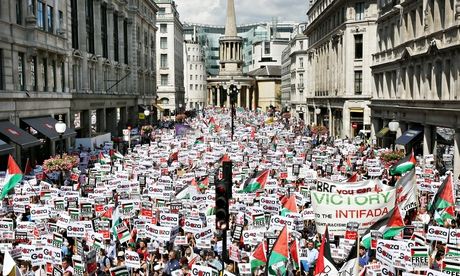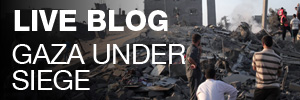الجزائر ــ العربي الجديد
10 أغسطس 2014
كشفت وثيقة رسمية مصرية، حصل "العربي الجديد" عليها، عن شروط "تعجيزية" تضعها السلطات المصرية أمام قوافل الإغاثة التي تسعى لإيصال المساعدات الطبية والغذائية إلى قطاع غزة عبر معبر رفح.
"
ممنوع إدخال أسطوانات الغاز والأموال ومواد البناء والمنازل الجاهزة
"
وتحدثت الوثيقة عن "القاعدة المنظِّمة لآلية دخول قوافل الإغاثة والمساعدات إلى قطاع غزة عبر معبر رفح في المرحلة الحالية". وأكدت الوثيقة، التي سلمتها السلطات المصرية إلى منظمات الهلال الأحمر والصليب الأحمر في الدول العربية خلال الاجتماع الأخير في الأردن، أن السلطات المصرية ألزمت الهيئات الإغاثية الراغبة في إدخال مساعدات إلى غزة بتقديم طلب عبر وزارات الخارجية في دولها، على أن يتضمن الطلب كشفاً بقائمة المساعدات المقدمة.
وألزمت السلطات المصرية الهيئات الإغاثية انتظار موافقة وزارة الخارجية المصرية قبل إرسال مساعداتها. وحددت مطار الإسماعيلية وميناء بور سعيد البحري لوصول المساعدات. وحمّلت السلطات المصرية الهيئات الإغاثية المانحة نفقات إنزال وتفريغ وشحن المساعدات الطبية والغذائية في مطار الإسماعيلية أو ميناء بور سعيد. كما منعت السلطات المصرية الهيئات الإغاثية من إدخال مواد البناء بمختلف أنواعها واسطوانات الغاز والوقود والمبالغ المالية والمنازل الجاهزة. وأبلغت الهيئات أن عدداً محدوداً من المرافقين للمساعدات الإغاثية سيُسمح لهم بالعبور.
وشددت الوثيقة أيضاً على أنه يتعيّن على الصحافيين والإعلاميين الراغبين في العبور إلى غزة موافاة السلطات المصرية بأسمائهم وجوازاتهم مسبقاً، مع اشتراط الحصول على الموافقة من وزارات الخارجية لبلدانهم أو سفاراتهم، لكن السلطات المصرية أكدت أن لها الحق في الاعتراض الأمني على دخول مَن تريد من دون إبداء الأسباب.
"
السلطات المصرية تريد إلصاق شارة الهلال الأحمر المصري على كل المساعدات المتوجهة إلى غزّة
"
وبشأن الطواقم الطبية، أشارت الوثيقة الى أنه يتوجب على الأطباء تقديم طلبات إلى وزارات خارجية دولهم والتنسيق مع وزارة الصحة الفلسطينية في رام الله، قبل الحصول على موافقة السلطات المصرية على دخول قطاع غزة.
وقالت الوزيرة الجزائرية السابقة، رئيسة الهلال الأحمر الجزائري، سعيدة بن حبيلس، في مؤتمر صحافي عقدته في العاصمة الجزائرية، إن السلطات المصرية تريد إلصاق شارة الهلال الأحمر المصري مع شارات المنظمات الأهلية والإغاثية على كل المساعدات المتوجهة إلى غزة.
وأبدت بن حبيلس انزعاجها من الشروط المصرية بشأن إدخال المساعدات، وأعلنت أن الهلال الأحمر الجزائري اضطر الى إلغاء حملة تبرع بالدم كانت ستتوجّه الى قطاع غزة بسبب الاشتراطات المصرية.
“The heart of the Earth beats in Gaza now. It bleeds, but it beats,” says Dr. Mads Gilbert.
The Norwegian emergency surgeon returned to his home city of Tromsø on 31 July, after spending several weeks treating the wounded from Israel’s assault at Gaza City’s al-Shifa Hospital.
He went straight from the airport to give a spontaneous speech at a large solidarity demonstration for Gaza held at the same time.
Tromsø is twinned with Gaza City.
The newspaper Nordlys made this video, above, of his speech. It is subtitled in English.
“The Palestinian people’s resistance in Gaza today is admirable, it is fair and it is a struggle for all of us. We do not want a world where raw power can be abused, to kill those who struggle for justice.”
Gilbert asks why after all the massacres, all of Israel’s violations of the laws protecting civilians, there are no sanctions on Israel.
He demands to know why the government of Norway is so “quiet” as Palestinians face “one of the most brutal occupation forces of modern history.”
“Solidarity is a powerful weapon,” Gilbert says, ending his address with a call for everyone to get involved in the movement for Palestinian rights.
“Israel is more isolated than ever and they deserve to be,” Gilbert says, endorsing theboycott, divestment and sanctions (BDS) movement.
It is a powerful 25-minute speech.
We have transcribed the first few minutes, in which Gilbert asks his fellow Norwegians to imagine what their country would be like today if they had not struggled for its liberation from German occupation:
I know you applaud for Gaza. I know you applaud for those who are there, the heroes of Gaza.This will be no easy appeal to make, because I am now overcome by the mildness, the warmth, the safety, the absence of bombs, jets, blood and death. And then all that we’ve had to keep inside comes to the surface – so forgive me if sometimes I break.I thought when I got home and met my daughters Siri and Torbjørn, my son-in-law and my grandkids Jenny and Torje, that it is such a mild country we live in.It so good, with a kind of humanity in all relationships, because we actually built this country on respect for diversity, respect for the individual, respect for human dignity.And imagine being back in 1945. And I beg to be understood when I say that I am not comparing the German Nazi regime with Israel. I do not.But I compare occupation with occupation. Imagine that we in 1945 did not win the liberation struggle, did not throw out the occupier, could not see a bright future or believe our kids had a future. Imagine the occupier remaining in our country, taking it piece by piece, for decades upon decades. And banished us to the leanest areas. Took the fish in the sea, took the land, took the water, and we became more and more confined.And here in Tromsø we were actually imprisoned, because here there was so much resistance to the occupation. So we are imprisoned for seven years, because in an election we had chosen the most resilient, those who would not accept the occupation.Then after seven years of confinement in our city, Tromsø, the occupier began to bomb us. And they began to bomb us the day we made a political alliance with those in the other confined parts of occupied Norway, to say that we Norwegians would stand together against the occupier. Then they began to bomb us.They bombed our university hospital, then the medical center, then killed our ambulance workers, they bombed schools where those who had lost their homes were trying to seek shelter. Then they cut the power and bombed our power plant. Then they shut off the water supply. What would we have done?Would we have given up, waved the white flag? No. No, we would not. And this is the situation in Gaza.This is not a battle between terrorism and democracy. Hamas is not the enemy Israel is fighting. Israel is waging a war against the Palestinian people’s will to resist. The unbending determination not to submit to the occupation!It is the Palestinian people’s dignity and humanity that will not accept that they are treated as third, fourth, fifth-ranking people.In 1938, the Nazis called the Jews “Untermenschen,” subhuman. Today, Palestinians in the West Bank, in Gaza, in the Diaspora are treated as Untermensch, as subhumans who can be bombed, killed, slaughtered by their thousands, without any of those in power reacting.So I returned home to my free country – and this country is free because we had a resistance movement, because we said that occupied nations have the right to resist, even with weapons. It’s stated in international law.You are permitted to fight the occupier even with weapons. One should of course respect international law …Nobody wants to be occupied!












